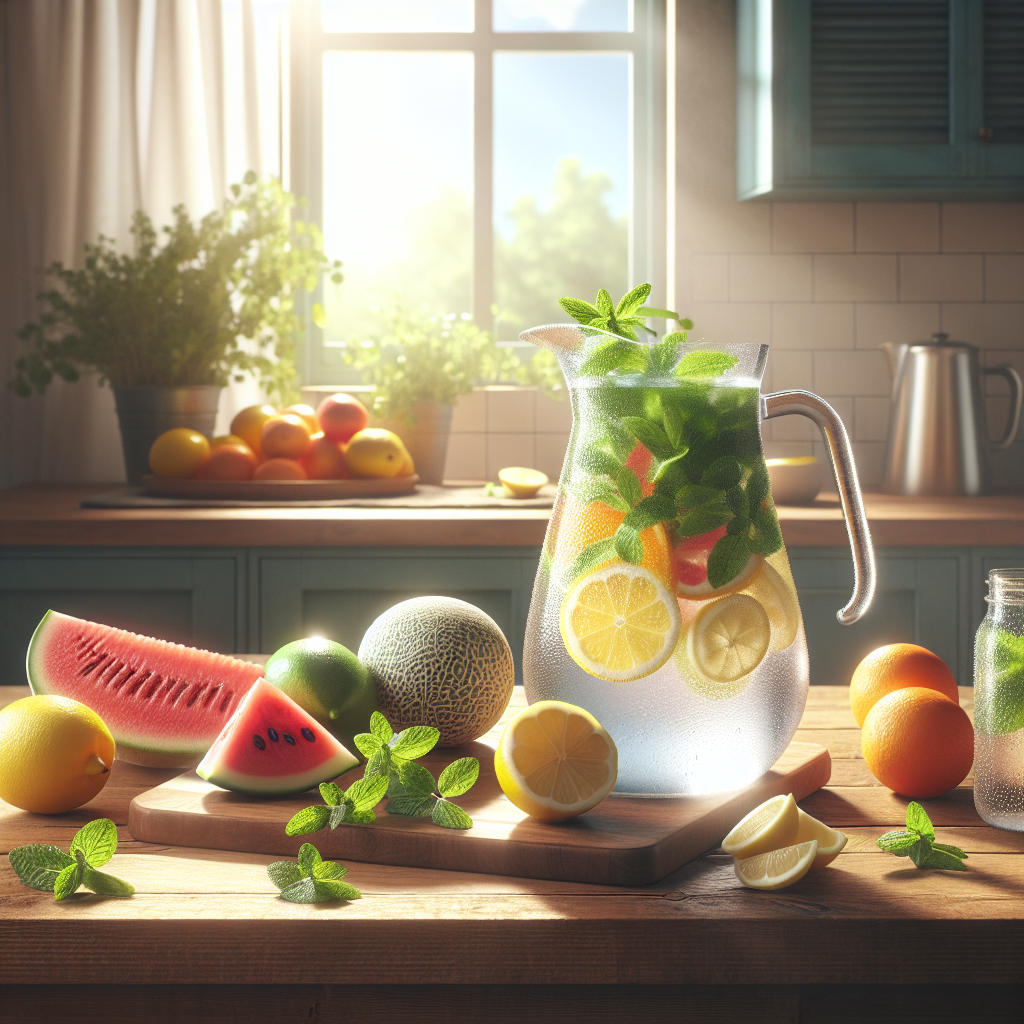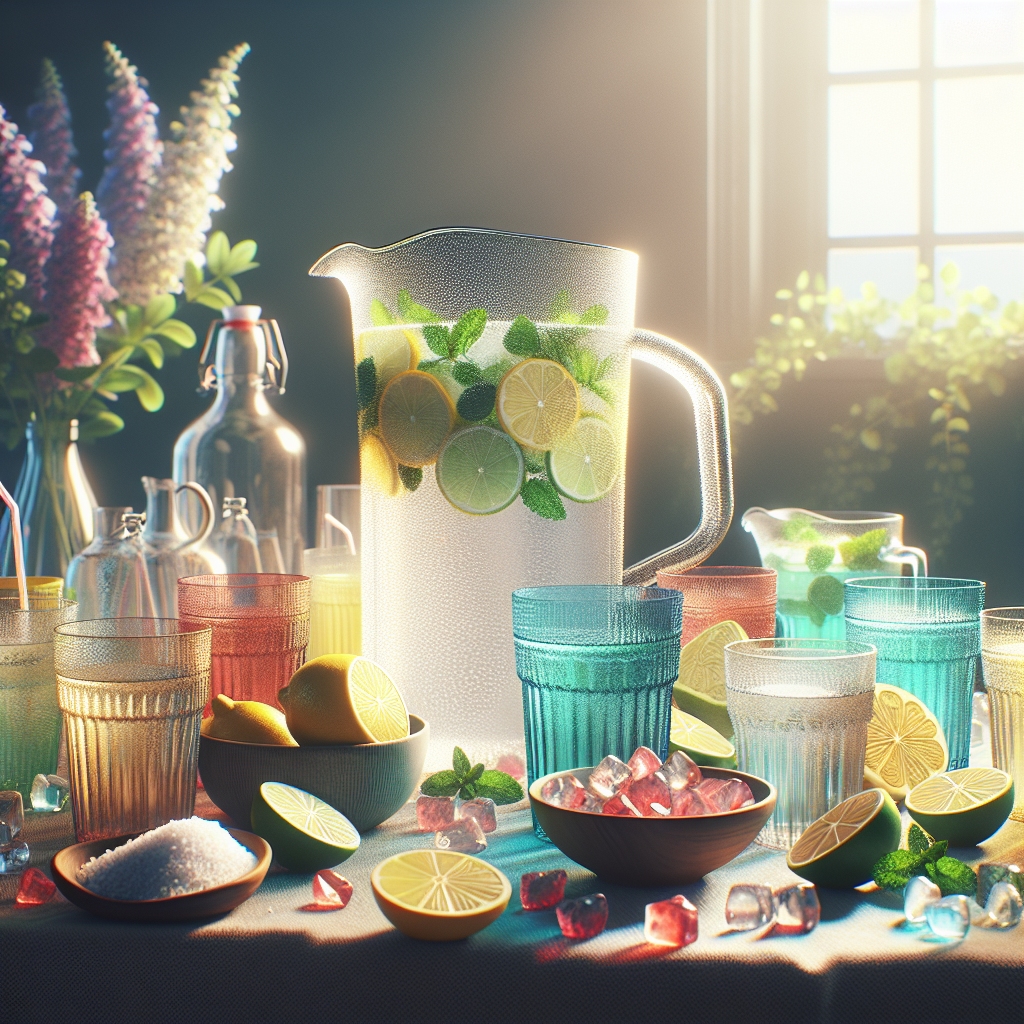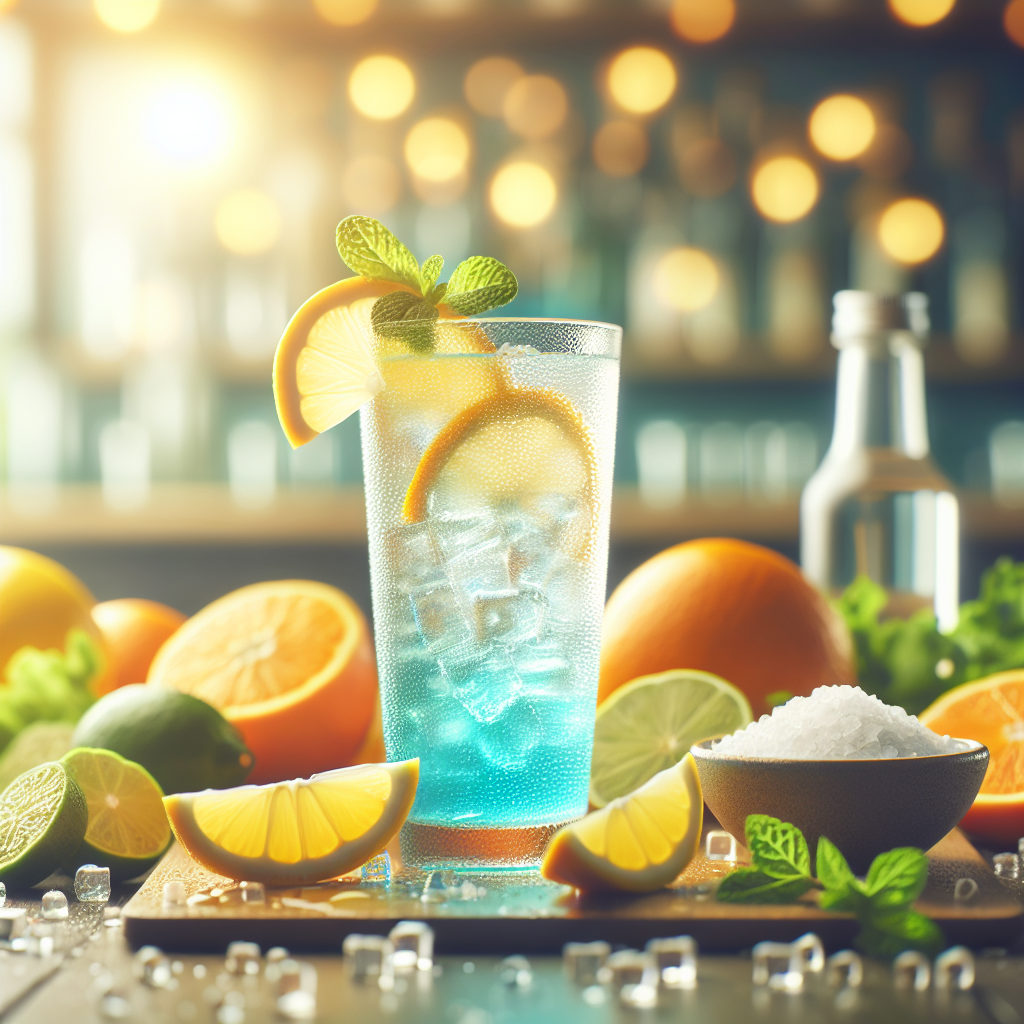Rehydration Therapy for Hangovers: The Ultimate Cure!
Rehydration therapy for hangovers is a scientifically-backed method aimed at alleviating the discomfort caused by dehydration after a night of drinking. When alcohol is consumed, it acts as a diuretic, leading to increased urination and a subsequent loss of crucial fluids and electrolytes from the body. This depletion can result in the notorious hangover symptoms such as headaches, fatigue, and nausea.
To combat these effects, rehydration therapy focuses on replenishing the lost fluids and nutrients. Here’s how it works:
- Fluid Replacement: By consuming water or electrolyte-rich drinks, the body can regain lost fluids. This is crucial for restoring hydration levels and improving overall well-being.
- Electrolyte Balance: Alongside fluids, it’s important to replenish electrolytes like sodium, potassium, and magnesium. These minerals play a vital role in muscle function and hydration balance.
- Vitamin Infusion: Some rehydration therapies include vitamins, particularly Vitamin B1 (Thiamine), which helps in metabolizing alcohol and reducing its aftereffects.
Incorporating rehydration therapy into your post-drinking routine can significantly enhance recovery and reduce hangover symptoms. By understanding its benefits, you can make informed decisions to support your body. Cure the Hangover before it happens! For an effective way to prevent hangovers, check out Booze Bandage and discover our hangover prevention patches that utilize natural Vitamin B1 to keep you feeling great after a night out.
Benefits of Rehydration Therapy for Hangover Relief

Rehydration therapy for hangover relief offers numerous benefits that can help individuals bounce back quickly after a night of indulgence. Understanding these advantages can empower you to take proactive steps in managing hangover symptoms effectively.
Here are some key benefits of rehydration therapy:
- Rapid Recovery: By reintroducing fluids and electrolytes, the body can recover more swiftly from dehydration. This means reduced symptoms such as headache, dizziness, and fatigue.
- Improved Hydration: Rehydration therapy helps restore the body’s natural hydration balance, enhancing overall wellness and energy levels.
- Electrolyte Replenishment: The loss of electrolytes can lead to muscle cramps and weakness. Rehydration therapy addresses this by providing essential minerals that support optimal muscle function and nerve signaling.
- Enhanced Mood: Dehydration can negatively impact mood and cognitive function. By alleviating hangover symptoms through proper hydration, individuals often experience improved mood and mental clarity.
- Prevention of Severe Hangover Symptoms: Rehydration therapy can significantly reduce the severity of hangover symptoms, making the experience more manageable and less disruptive.
Incorporating rehydration therapy into your recovery routine can lead to effective hangover relief, allowing you to enjoy your time out without the fear of feeling dreadful the next day.
How to Implement Rehydration Therapy Effectively
Implementing rehydration therapy effectively is crucial for maximizing its benefits and ensuring a swift recovery from hangovers. Here are some practical steps to guide you through the process:
- Start Early: Begin your rehydration efforts before the alcohol consumption starts. Drinking water or electrolyte-infused beverages can help maintain hydration levels.
- Choose the Right Fluids: Opt for drinks that contain electrolytes, such as sports drinks, coconut water, or specialized rehydration solutions. These beverages help replenish essential minerals lost during drinking.
- Set a Hydration Goal: Aim to drink at least 8-10 ounces of water or an electrolyte beverage for every alcoholic drink consumed. This helps counteract the dehydrating effects of alcohol.
- Utilize IV Therapy if Necessary: For severe hangover symptoms or dehydration, consider professional rehydration therapy through IV fluids. This method provides rapid absorption of fluids and electrolytes directly into the bloodstream.
- Monitor Your Body: Pay attention to your body’s signals. If you feel thirsty, dizzy, or fatigued, increase your fluid intake immediately to avoid further dehydration.
- Continue Hydration Post-Drinking: After the night out, keep hydrating with water or electrolyte drinks to support recovery. This step is essential for flushing out toxins and alleviating hangover symptoms.
By following these steps, you can implement rehydration therapy effectively, enabling your body to recover more efficiently and enjoy the day after your night out.
Comparison of Rehydration Therapy and Other Remedies

When it comes to alleviating hangover symptoms, various remedies are available, but rehydration therapy stands out for its effectiveness. Here’s a comparison of rehydration therapy with other common hangover remedies:
| Remedy | Effectiveness | Advantages | Disadvantages |
|---|---|---|---|
| Rehydration Therapy | Highly effective in replenishing lost fluids and electrolytes | Quick recovery, targeted hydration, can be done at home or professionally | May require access to specific products or services |
| Over-the-Counter Pain Relievers | Relieves headaches and body aches | Widely available, quick relief for pain | Does not address dehydration, potential side effects on an empty stomach |
| Home Remedies (e.g., ginger tea, honey) | Variable effectiveness; may provide some symptomatic relief | Natural ingredients, often inexpensive | Results may take time, may not address core issues like dehydration |
| Hair of the Dog | Temporary relief for some | Quick fix for alcohol cravings | Can worsen long-term hangover symptoms, prolongs recovery |
While many remedies exist, rehydration therapy’s focus on restoring hydration and electrolyte balance makes it a superior choice for effective hangover recovery. By choosing this method, you prioritize your body’s need for essential nutrients, allowing for a smoother recovery process.
Natural Ingredients to Enhance Rehydration Therapy

Enhancing the effects of rehydration therapy can be achieved through the incorporation of natural ingredients known for their hydrating and restorative properties. Here are some powerful natural ingredients that can boost your rehydration efforts:
- Electrolyte-Rich Coconut Water: Naturally high in potassium and sodium, coconut water is an excellent choice for replenishing electrolytes lost during alcohol consumption. Its light sweetness makes it a refreshing addition to any rehydration plan.
- Fresh Fruit Juices: Juices from fruits like watermelon, orange, and lemon not only provide hydration but also offer essential vitamins. Their natural sugars can help restore energy levels while enhancing flavor.
- Herbal Teas: Herbal teas, such as chamomile or peppermint, can be soothing and hydrating. They can also aid digestion and help alleviate an upset stomach, making them a great addition to your recovery routine.
- Honey: A natural source of carbohydrates, honey can provide a quick energy boost. It also has antimicrobial properties and can aid in digestion, making it a beneficial ingredient in your rehydration drink.
- Sea Salt: A pinch of sea salt can help restore sodium levels in your body. Combining it with water or coconut water can significantly enhance the electrolyte balance your body craves after a night of drinking.
By integrating these natural ingredients into your rehydration strategy, you can create a more effective and enjoyable recovery experience. Not only do they support hydration, but they also provide additional health benefits that can help you feel revitalized and ready to tackle the day ahead.
Preventing Hangovers with Rehydration Strategies

Implementing effective rehydration strategies can be a game-changer in preventing hangovers before they even start. The key lies in understanding how your body reacts to alcohol and taking proactive measures to maintain hydration levels. Here are some essential strategies to consider:
- Drink Water Before and During Alcohol Consumption: Staying hydrated before you start drinking is crucial. Aim to drink a glass of water for every alcoholic beverage you consume. This not only helps keep your body hydrated but also slows down alcohol absorption.
- Choose Hydrating Drinks: Opt for cocktails made with hydrating mixers such as soda water or coconut water instead of sugary sodas or juices. These not only taste great but also provide essential hydration.
- Snack Wisely: Eating foods rich in water content, like fruits and vegetables, can aid hydration. Salty snacks can also help retain fluid in your body, but be sure to balance them with water intake.
- Utilize Rehydration Supplements: As part of your hangover prevention plan, consider using products like the Booze Bandage hangover patch. Infused with natural Vitamin B1 (Thiamine), it helps replenish essential vitamins, keeping you feeling great the next day after enjoying your drinks.
- Get Plenty of Sleep: Rest is essential for recovery. Ensure you get a good night's sleep after drinking and hydrate well before bed to wake up feeling refreshed.
By incorporating these rehydration strategies into your drinking habits, you can significantly reduce the risk of a hangover. Remember, Cure the Hangover before it happens! with the right preparation and hydration tactics!
